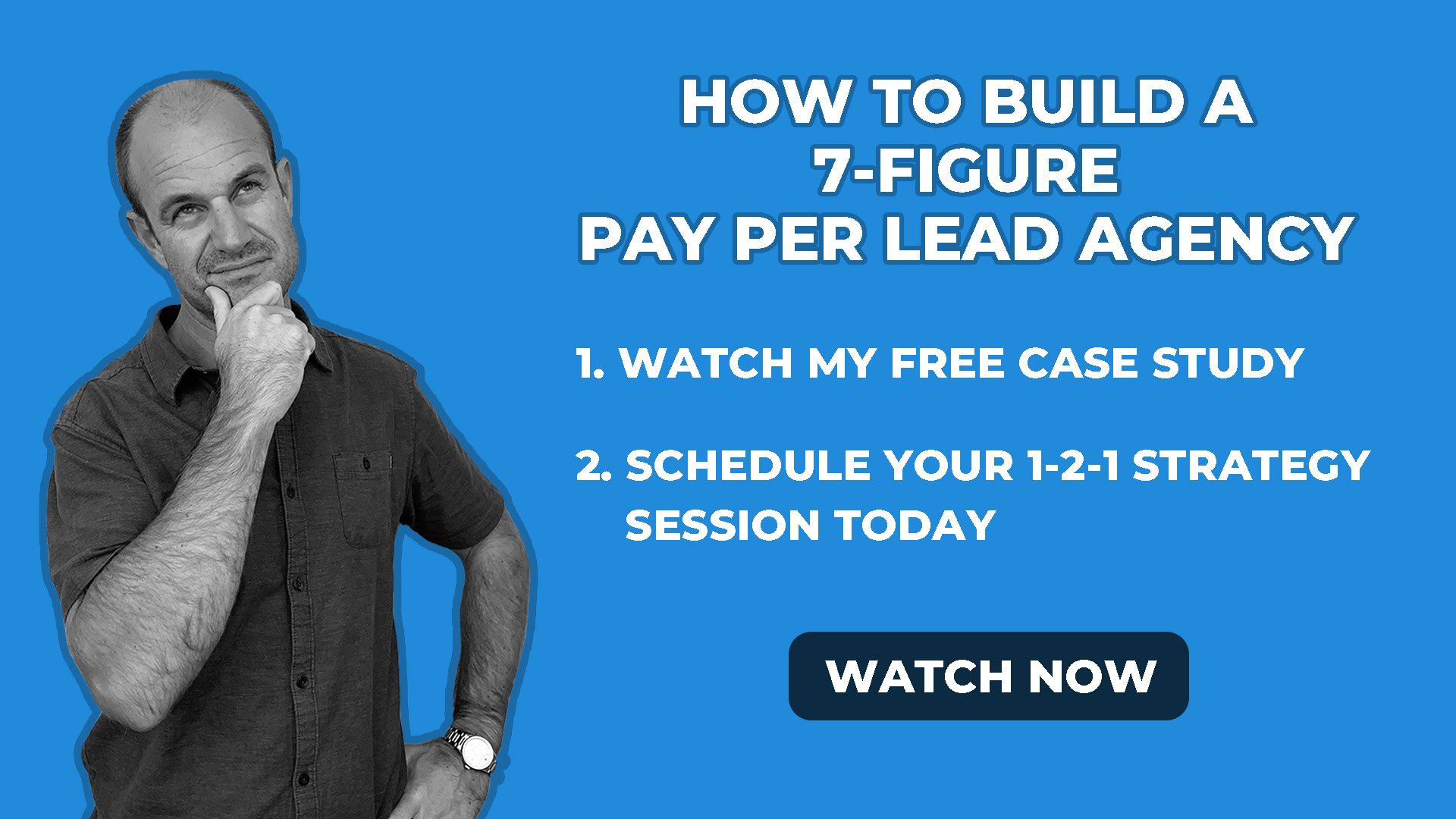Balancing work and family can be difficult – especially when you’re an entrepreneur. Here are my top tips for keeping everybody happy – including you.
When people talk about entrepreneurship, it’s mainly about the challenges that apply directly to that person. Being an entrepreneur means long hours, a lack of social life, that weekends are no longer “downtime”, but a means to squeeze more work into seven days.
While all this is technically true, there is less thought to how entrepreneurship affects those closest to a person – i.e. balancing your work with family and friends.
Let’s be honest. When we got ourselves into this game, we knew that balancing work and family was going to be a challenge. Once I’ve fixated on an idea, I will pour all my time and energy into it until it’s finished. I was born that way.
But, on my journey to becoming a self-sufficient PPC agency owner, I met the love of my life. I married Mimi and went on to have two amazing children.
Suddenly, my life was filled with people who depended on me. My wife has always been very supportive and understanding, but I couldn’t work 24/7 with kids.
Having a family meant that I needed to rewire my brain and make a business schedule that worked for everyone.
And, in the process, I started to understand how other people, non-entrepreneurs like my Mum and Dad, could view my work.
Today’s post is a little more personal than informative, but I think most of you guys out there will relate.
I’ve found that balancing work and family is like an art. I’m not going to tell you to do stuff like “eat dinner with your family every night”, as sometimes that’s not possible. But I will talk to you about your family’s thought-process, how it differs to yours, and what you can do to achieve harmony between both.
So, first thing’s first…
Don’t Expect Family To *Completely* Understand What You Do

When you’re passionate about something, you want to talk about it all the time.
And when you talk about something all the time, it can be really frustrating when other people still don’t “get it”.
Explaining something over and over again can be draining. Your mind is racing at a million miles an hour, and all you can see is a host of blank, polite faces. You try everything to get them on board, to get them as excited as you are. Then someone inevitably says:
“Sorry, I don’t understand.”
Those four words are like a needle to a balloon. Suddenly, you’re exhausted and annoyed. If friends and family can’t understand what you’re doing, how can they begin to support you?
Trust me; it doesn’t work like that.
Family are perfectly capable of supporting your entrepreneurial dreams, even if they can’t comprehend the details.
I started my lead generation agency four years ago. I’d dabbled with PPC before, but FlexxDigital was my first “proper” go at it. I began selling leads to national clients on a Pay Per Lead basis – a model of my own making.
Though FlexxDigital and, later, Flexxable, make up the centre of my universe, even I can recognise that it’s a pretty niche business.
Unless you’ve done some research into online marketing, you’re not going to know what lead generation is. I’ve hired people who knew nothing about lead generation. It’s not something that comes up at school, or university, or any of those places that push you towards a corporate job.
If you find yourself getting frustrated with your family, it may be time to start reframing your message.
For example, instead of telling old Aunt Ada, “I own a Pay Per Lead agency,” try talking to her about the value of what you do:
“I work with businesses in the car finance industry. My advertisements help customers find the best car insurance deals.”
Does that cover everything? No. But it’s enough to give a snapshot of what you do, in layman’s terms.
When someone understands something, they’re much more likely to offer words of encouragement. So, think about your message when speaking to family, and you’ll find that they’re supportive than you think.
Don’t Mistake Family Concern For Discouragement

Entrepreneurs tend to have a lot of ups and downs. Running a business is often described as a “roller coaster ride” for a reason.
When your business isn’t doing well, it’s natural to want to talk about it with a loved one. That could be your spouse, your parents, or a friend.
But you’ve got to remember that (most of) your family and friends are going to have a “normal” 9-5 type job. Now, I’m not saying that a 9-5 doesn’t come with a fair amount of stress. Everyone has deadlines, huge workloads, colleagues they don’t get on with, and even bad bosses.
That said, a 9-5 also comes with a stable routine. You know what hours you’re going to work. You know what the day-to-day looks like. For the most part, you feel safe and secure. Even if you’re worried about being fired, you know it’s not going to happen overnight. There are enough warning signs to get you, if you’re wise, quickly looking for another job.
Entrepreneurship plays a lot more on your “fight, flight and freeze” responses. Your survival depends on your business – aka you can only pay for your mortgage, comforts, food with whatever you bring home that month. You’ve made promises to your partner, parents, children. You probably owe some people a lot of money.
When things aren’t going well in your 9-5, your loved ones are going to worry. When you have a bad patch as a business owner, they’re going to doubly worry.
You can see the logic:
9-5 = Security.
Entrepreneurship = No security.
If your parents, spouse or whoever start talking to you about getting another 9-5 job, don’t view it as a betrayal. It doesn’t mean that they don’t believe in you. It’s actually their way of offering you the security they think you need.
They don’t understand that the thought of you working for another person makes you feel sick.
They don’t understand you’d rather fail on your terms than succeed under someone else’s.
Likewise, they don’t understand that your worries come from sheer passion as much as an imminent threat to your livelihood.
So, if your parents/spouse/friend start talking to you about the joys of a 9-5, give them a break. Balancing work with family means empathy coming from both sides – and recognising it when it’s there. Your family are just doing what anyone else would do when they see a loved one in distress – offering a solution they know something about.
Accept That, In Your Family’s Eyes, You’re Following The Road Less Travelled

We’ve reached a golden age of entrepreneurship. It seems like everyone today is, or wants to become, their own boss. People now are more curious than ever, and they are using their unique ideas to solve problems in business, society and with the planet.
But hundreds of years of the “social norm” still leans heavily on Western culture. You know the drill:
- Go to school and work hard
- If you get good grades, go to university
- If your grades are lacking, learn a profitable skill
- Get a job
- Work your way up the ladder
- Buy a house
- Marry your partner
- Have kids
- Retire on a decent pension
- Die
Whether we like it or not, deviating from that path is still considered “unusual”.
I’ve spent a good chunk of my life following that path. I went to school, worked hard, and then got accepted into university to study chemical engineering.
Within a year of my studies, I knew that university wasn’t for me. As a result, I struggled with my classes. It wasn’t that I couldn’t do it – it’s just that my heart wasn’t in the right place.
But I’d be taught to follow a particular path. The degree took me five years when it should have taken four. I’d work so hard for a bit of paper I didn’t even want, I ran headfirst into a chemical engineering job.
And guess what? I hated it. I spent a decade lying awake at night, dreading going to work the next morning. That was with a comfortable job on the supposed right path. I had a set amount of hours, a good salary, and promotions over time.
One day, I’d had enough. I quit my job and threw myself headfirst into the whirlpool of entrepreneurship.
And in that whirlpool, I’ve failed many, many more times than I would have as a chemical engineer. Ups and downs don’t even begin to cut it. But this time, I wasn’t staring at the ceiling or hating my life. My heart was in it, and it was something I truly enjoyed (even if my mood swings said differently).
I finally started to believe in myself.
Talking about this is very different to actually feeling it.
Your friends and family may understand the feeling on a certain level, but they’ll never know it unless they go through the same.
That means, to them, you’re following “the road less travelled”. The path that’s filled with “unnecessary risks”. And that may come out in every conversation you have with them, positively or otherwise.
Balancing work and family when you’re an entrepreneur doesn’t mean giving up on your dreams. It doesn’t mean going for the “other” option to please parents, a spouse, aunts, whoever.
But unless you want to spend your whole life resenting the people who care about you, suck it up. Have faith in yourself and the difference you’re making in the world. Attitudes pass over to people like genetics. If you show you’re comfortable with your decisions, they will be too.
That said…
Boasting Means You’re Still Looking For Approval

When I started, I used to boast to my family about my every achievement.
If I landed a big client, my mum and dad were the first people I’d ring. I’d spill all, from who they were to how much they were paying me a month.
Of course, it’s lovely to be able to share some good news. When your parents think the path you’ve chosen is a “risky” one, reporting that you’re doing well should help to ease any fears.
But I wasn’t sharing my good news as much as bragging about it. The truth was, I was still very unsure of what I was doing and felt a bit lost. I thought that, by boasting to my family and friends, I’d somehow clarify my path to myself and feel more secure.
Every single “well done, that’s brilliant” was a shot of dopamine straight to my heart.
But a feeling based on outside validation is never going to last very long. People get used to what you’re doing or get tired of your insecurity. Saying “well done” to you is more of a chore than a genuine compliment.
At the end of the day, you’re doing this entrepreneur thing for you, no one else. If you can’t recognise the skills and talent you bring to the world, other people aren’t committed enough to make you see it. They’ve got their own deal going on.
Confidence comes from within. A confident person will be proud of their successes, but keep in mind their flaws and failures. They will treat themselves with compassion while taking responsibility for their actions.
A person whose sense of self-worth depends on others will have a much tougher time. Criticism will always be the enemy. Failure must be avoided at all costs. They’ll start blaming others for their incompetencies or will ditch a half-finished project if it’s anything less than perfect.
So, cool it with the boasting, ok? Share your good news, but don’t make your success rest on compliments from family and friends.
Plus, if everything does go wrong, all your bragging is going to backfire catastrophically. Confused isn’t the right word for it. Your family may go as far as feeling betrayed.
Balancing Work and Family: Conclusion








